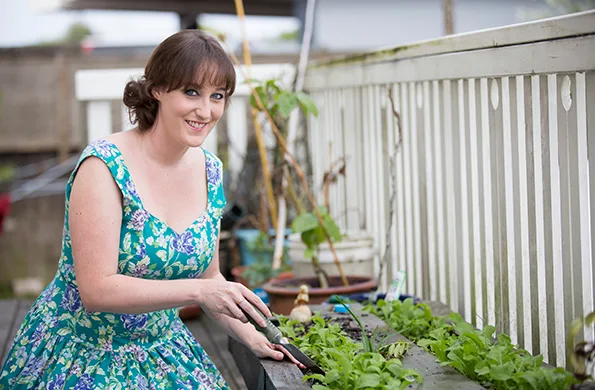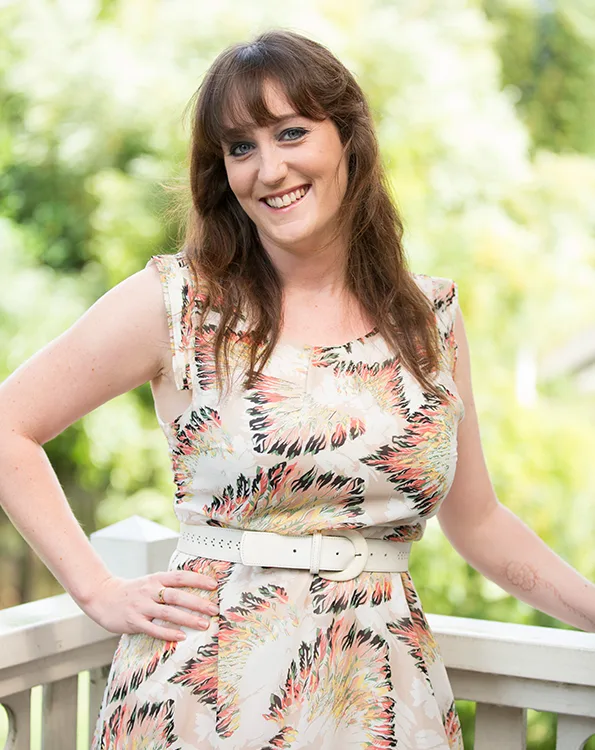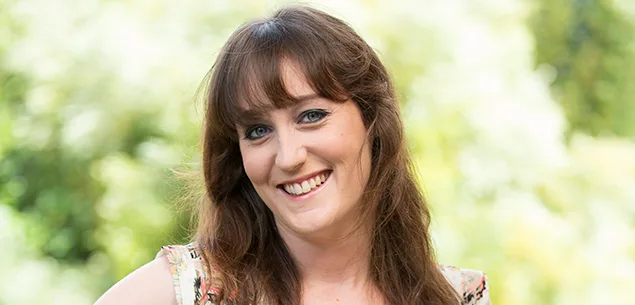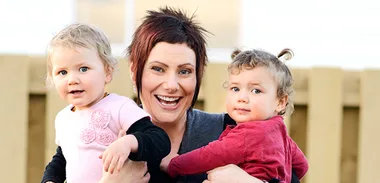You won’t find “survivest” in the dictionary but this word, invented by a Kiwi entrepreneur, is catching on.
Chloe Waretini (28), who was diagnosed with borderline personality disorder (BPD) in 2012, named her blog Survivest, where she reveals her experiences surviving mental illness.
“It’s a word I made up. It was coming from a place of having survived something rather than suffering. I never wanted people to feel sorry for me.”
Unknown to Chloe, the condition has affected her since she was very young, but it took until she was 26 – after she’d been married and separated, tried to take her life on four occasions, and been confined to a psychiatric unit – to be diagnosed with the disorder.
Since then, the “social entrepreneur” and event designer has turned her life around and now helps others find happiness and love through a unique concept in dating.
“There are still times when I get stressed and suffer rejection, but I know how to deal with it now. I don’t expect to be superhuman,” says Chloe.
May marks International Borderline Personality Month, something Chloe wants to highlight considering that one in five New Zealanders suffer from some kind of mental illness.

Chloe has started “weed dating”, where singles garden and get to know one another.
Chloe first started exhibiting behavioural problems as a pre-schooler. “I’d come home from kindergarten and tell Mum I was happy. But when she went to a parent-teacher meeting, she found out I hadn’t spoken the whole time I was there!
“I was always more sensitive than anyone else and so shy. It took me two and a half years at school to have the confidence to answer at roll call time because my anxiety was so intense.”
Chloe endured bullying, which continued into her teens, when she was diagnosed with depression and prescribed antidepressants. She struggled in social situations and left school at the end of sixth form.
Six weeks into her university studies, she sustained a broken neck in a car accident.
After her recovery, she met her future husband, but their two-year marriage ended when she was 25. “It was hard for my ex-husband; he’d often despair at my depression and inability to get out of bed,” she reveals.
“Someone with BPD doesn’t have a stable sense of identity so they find it through others. I’d see someone I admired and want to be like them – that’s what I did in that relationship.”
However, that hasn’t stopped her helping others find romance and recently ran her first “weed dating” event at Auckland’s EcoWest Festival. Weed dating is where strangers get to know each other while weeding overgrown public spaces.
“Trying to find romance is hard. I started weed dating because I wanted to find a date myself!” she jokes.
Chloe, who also co-founded Auckland’s Waitakere Festival, aims to put environmental action into people’s lifestyles and weed dating is aligned to that.
“A big part of mental illness is about feeling disconnected from the world around us, so all these public events aim to remedy that.”
However, it wasn’t long ago that Chloe was on a different path – one to end her short life.
“Two years ago I took all my medication – about eight weeks’ worth – in one go. I’d been behaving erratically and my parents took me to hospital. I was going to kill myself.”
Confined to a psychiatric ward, Chloe was diagnosed with BPD, which came as a huge relief to her and her family.
“People with this condition are wired with emotions that are more intense than 98% of the population,” says Chloe, who has learnt to manage her disorder through dialectical behavioural therapy, a type of psychotherapy designed to change patterns of behaviour, such as self-harm.
“I still cry, get stressed and overwhelmed, but now I know what to do. Before, I’d have beaten myself up, had a couple of drinks or hidden away.”
Chloe wants to break down the misconceptions about mental illness. “I’m not ashamed. People who survive mental illness should have the same esteem as people who’ve survived cancer. If you had a roomful of people and asked the cancer survivors to stand up, they would. For mental illness, it would be a different story.”

“I still cry, get stressed and overwhelmed, but now I know what I have to do,” says Chloe.
What is…BPD?
BPD is diagnosed in around two percent of adults and in up to 20% of people using mental health services. It’s more often diagnosed in women than men. People with BPD are often in significant emotional pain. The name comes from the fact that it was once thought to be on the border between psychosis and neurosis.
Courtesy of the Mental Health Foundation of New Zealand.
Where to get help
If you suffer from depression or struggle to cope, help is readily available. For advice on safe and effective suicide prevention activities, contact Suicide Prevention Information New Zealand on spinz.org.nz.
Photographs by: Caren Davis
Make-up by: Luisa Petch.


